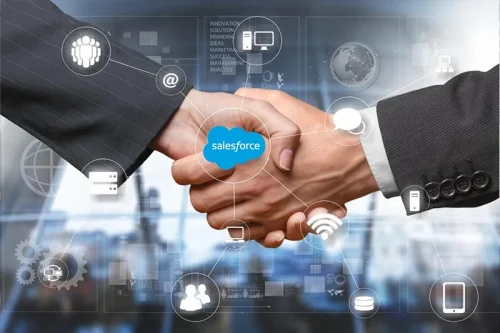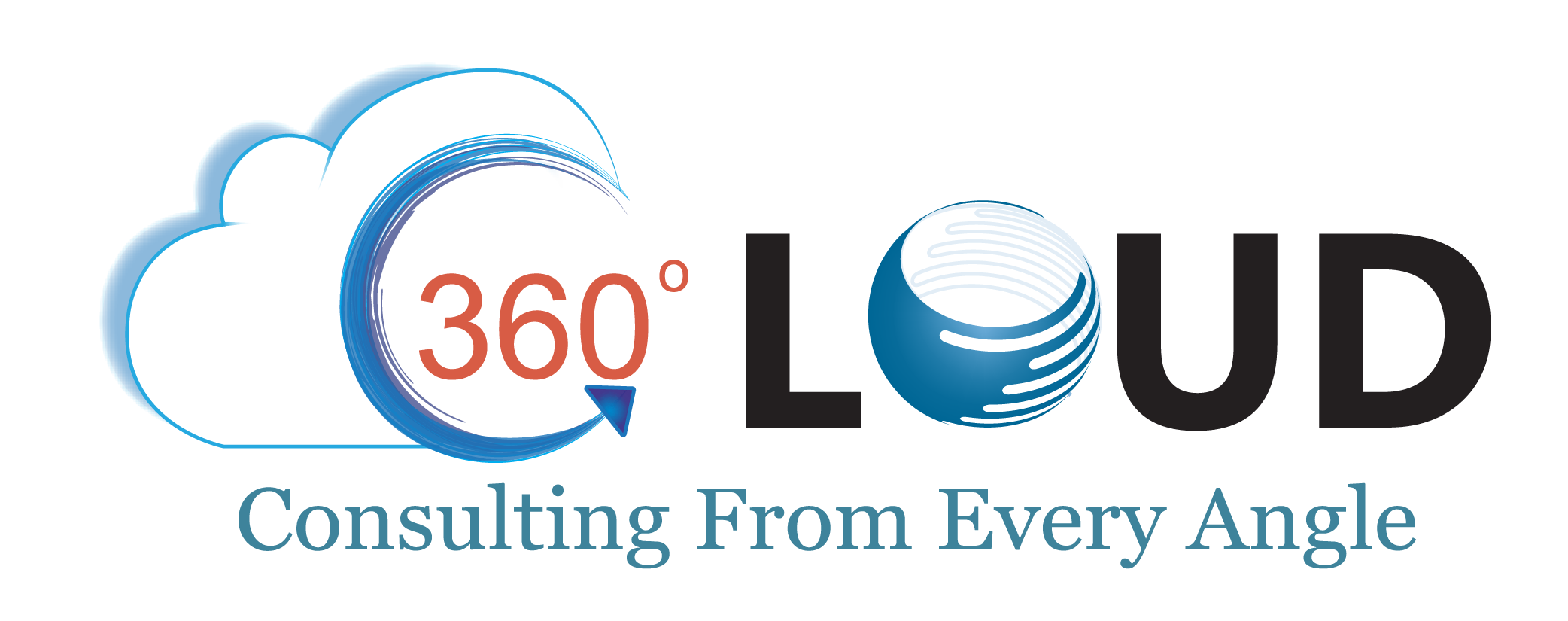6 Steps to Pick the Best Salesforce Consulting Agency for Growth
13 Sep 2019
Table of Contents

Salesforce is the best-in-class CRM platform that has revolutionized the way businesses generate leads and manage customer relationships. According to Salesforce, their customers have seen increase in sales productivity by 36%, deal closures by 26%, sales revenue by 28%, and forecast accuracy by 38%.
It’s user-friendly interface, lightning speed, highly compatible widgets; all of these make it extra special and hence, undoubtedly, it becomes the top choice of the majority of the audience worldwide using Salesforce as their CRM solution. There is no deniable fact that business firms using Salesforce CRM are more likely to achieve success in the near future than the ones who do not use CRM software.
Despite its groundbreaking capabilities and exceptional features, maximizing its usage is a challenge. Implementing, customizing, and optimizing Salesforce includes navigating technical challenges and making strategic decisions. Whether it’s migrating legacy data, integrating systems, or providing customer support, the journey with Salesforce demands specialized expertise to truly harness its potential.
This is where a Salesforce consulting company can be your closest ally. These companies can offer a wealth of knowledge and expertise to guide your business through your entire Salesforce journey.
In this blog post, let’s find out how you can choose the best Salesforce consulting agency and how it can impact your business growth positively.
Table of Contents
Why Choosing the Right Salesforce Consulting Company Matters
Do you know that 70% of the Salesforce implementations benefit from the expertise of consulting partners? In fact, most stalled Salesforce programs are not platform problems, they are partner problems. The only difference between “we launched features” and we unlocked ROI, speed, and compliance is the operating model your Salesforce consulting partners brings. So, let’s take a look at another reasons why you should have the right Salesforce consulting agency by your side.
A poor fit can result in:
- Budget overruns and delayed timelines
- User adoption challenges
- Low ROI on Salesforce investments
- Misaligned configurations
On the other hand, the right Salesforce partner can help you ensure:
- Sound architecture choices so you make smart build vs configure calls and know when Data Cloud is the better fit than standard objects.
- Responsible AI in production with guardrails, human approvals, and auditable logs that keep outcomes safe and compliant.
- Resilient integrations designed around events and contracts with safe retries, not fragile point-to-point connections.
- Predictable operations where releases are observable, on a steady cadence, and continuously improved without heroics.
Get a No-pitch Review of Scope, Risks, and the Fastest Path to Value.

1. Check for Verified Expertise (Navigators, Specialization, Reviews)
Finding a Salesforce partner that matches your specific goals and needs across Salesforce products, industries, and services. Here are the 6 criteria you can look for during your research and accelerate your business growth.
The first thing is to check for their expertise. For this, you can check Salesforce Partner Finder and AppExchange listing. They show real-time Navigator distinctions by product, industry, service, and verified project reviews. This is one of the fastest ways to differentiate claims from proofs. You can ask them for a screenshot of their expertise and the last five verified reviews that show measurable results. In addition to that, ask them for the direct AppExchange listing link and the Partner Finder profile.
2. Look for Multi-Cloud and Agentforce/AI Readiness
Having multi-cloud expertise and AI readiness is not a luxury now; it’s a staple. You are operating a data + AI system now. Therefore, the ideal Salesforce partner should be able to show how they prompt, evaluate, and version rollback agents and how they wire KPIs to prove value (CSAT, AHT, win-rate). To evaluate this, you can check evaluate prompts, approval chains, offline tests, drift monitoring, and audit trails. Additionally, you can ask them to show one production agent they shipped, how they tested hallucination offline, and their rollback criteria. For the proof, you can ask for the snapshot of prompt/versioning repo, eval report (a short pre-launch summary that shows how an AI agent met accuracy, safety, and latency threshold), and a kill switch release note (Instructions to instantly disable or roll back an AI feature: triggers, steps, and owners.).
Wanted to Know If Your Salesforce Organization is AI-Ready?
3. Design Integration Around Contract Not Connectors
Instead of stitching systems together one by one, you need to set clear data contracts and send changes as events. This helps you keep your stack stronger as it grows. Also, you should ask your Salesforce partner to show how a single customer record becomes the golden record and which events will move between Salesforce and your ERP. An ideal setup includes an event menu (what gets published and when), customers that won’t double process messages, and safe rollback plans. In addition to that, you can ask for an event catalog, a few simple diagrams of key flows, the target times for recovery and latency, and a short playbook for identity and consent in Data Cloud for proof from your Salesforce partner.
4. Secure Access You Can Audit
You should protect data with the least privileged roles, tested sharing roles, and clear logging. Ask your Salesforce consulting services provider how they will set up rules for sellers, agents, and partners and how they prove those rules before going live. To check this, you can ask for a role/sharing matrix, a sample access review, examples of field-level protection, and an audit log extract that shows who did what and when.
5. Evaluate Their Delivery Methodology and Governance
Go for a Salesforce consulting company that runs on a clear and documented playbook, not an ad hoc effort. You should ask for a sprint-based plan, a decision log, UAT entry/exit criteria, and a change control process you can understand. In addition to that, ask for a sample project plan, a redacted “decision-to-test-to-release” trail, and how they handle scope changes without derailing timelines.
6. Asses Their Success Metrics and Post Go-Live Support
This is a very crucial step to understand the capabilities of your Salesforce consulting partner. You should pick a partner that proves value early and keeps the system healthy after launch. For this, you can look for business KPIs instrumented by Sprint 2, a 30–60 day hypercare plan with SLAs, and a predictable monthly release cadence. In addition to that, you should ask for a KPI-to-field map with a working sandbox dashboard, a hypercare checklist, and sample release notes that show steady, low-risk improvements.
Red Flags to Avoid When Choosing the Best Salesforce Consulting Agency
Before you lock in the deal, it is crucial to check how the agency actually operates. Therefore, to make things easy for you, we’ve curated a simple table and if you tick two or more red flags, pause the deal or reset the terms.
| Red Flag | Why it’s risky | What good looks like | What to ask for (proof) |
| “We’ll finalize scope during UAT.” | Scope creep, delays, and blown budgets; UAT becomes design-by-fire. | blown budgets; UAT becomes design-by-fire.
Scope and “decisions to make” are agreed in discovery; changes follow a simple, written process. | Sample decisions log + change-control process; a redacted SOW showing how changes are handled. |
| No sandbox strategy (dev/test/prod muddled) | Higher chance of breaking prod; hard to reproduce and fix defects. | Separate dev, test, and staging orgs with a clean promotion path to prod. | Environment diagram; release/promotion checklist; example pre-prod signoff. |
| Data migration = CSV import | Dirty, duplicated, or orphaned data; no rollback if cutover fails. | Written migration plan: profiling, cleansing, mapping, test runs, reconciliation, rollback. | Migration checklist; field-mapping sample; reconciliation report from a past project. |
| AI promises without safety model or offline eval | Hallucinations, compliance risk, and bad customer outcomes. | Versioned prompts, offline evaluation, human approvals, monitoring, and a kill switch. | One live agent walkthrough; prompt/version log; eval report; rollback runbook; audit log snippet. |
| No measurable KPIs until after go-live | You can’t steer during build; value surprises arrive too late. | 3–5 business KPIs wired by early sprints and reviewed in demos. | KPI→field map; working sandbox dashboard; sprint review agenda with KPI checkpoints. |
| Part-time PM and a “hero” culture | Slips, burnout, and unstable releases; issues get reactive, not managed. | Dedicated PM, weekly cadence, risk/issue logs, predictable monthly releases. | PM allocation in SOW; sample status + risk log; recent release notes showing steady changes. |
“Choosing a Salesforce partner sets how your teams will work for years. The right agency makes clear architecture calls, keeps AI safe, and proves value early with visible KPIs. We stand apart by designing for handover from day one, documenting decisions, wiring KPIs early, and running predictable releases your team can own.“
Siddarth Sehgal, CEO, 360 Degree Cloud

The Bottom Line
On a concluding note, we can also say that finding the right Salesforce Consulting agency for your business venture on the first attempt is not everyone’s cup of tea. It needs just the right amount of hard work, dedication and teamwork to get the one who can work as per your business needs and interests. Wondering where to find the best Salesforce agency? With the best price in the industry and providing you with complete project transparency, 360 Degree Cloud can cater to all your needs related to Salesforce. Being in this business for the last 8 years, we are experts in providing almost all kinds of Salesforce related services. Connect with us today and feel the difference now.
About the author
Editorial Team – 360 Degree CloudThe Editorial Team at 360 Degree Cloud brings together seasoned marketers, Salesforce specialists, and technology writers who are passionate about simplifying complex ideas into meaningful insights. With deep expertise in Salesforce solutions, B2B SaaS, and digital transformation, the team curates thought leadership content, industry trends, and practical guides that help businesses navigate growth with clarity and confidence. Every piece we publish reflects our commitment to delivering value, fostering innovation, and connecting readers with the evolving Salesforce ecosystem.
Recent Blogs
 Salesforce Services
Salesforce Services
Top Salesforce Consulting Partners in India You Can Count On
The global CRM market size was valued to be around USD 112.91 billion in 2025 and is expected to grow from USD 126.17 billion in 2026 to…
Read More Salesforce Services
Salesforce Services
Salesforce Partners: What They Are, Partner Tiers & Why You Need One
Implementing Salesforce for business operations can often be described as buying a high-performance jet; no wonder it’s an incredible piece of machinery, but it won’t get you off the ground without a…
Read More Hire Staff
Hire Staff
Hire a Salesforce Developer: 7 Reasons Your Business Needs One
Whenever a company starts getting Salesforce projects, and work starts to pile up, the first option that comes to their mind is to look for…
Read MoreReady to Make the Most Out of Your Salesforce Instance?
Our Salesforce aces would be happy to help you. Just drop us a line at contact@360degreecloud.com, and we’ll take it from there!
Subscribe to our newsletter
Stay ahead with expert insights, industry trends, and exclusive resources—delivered straight to your inbox.



